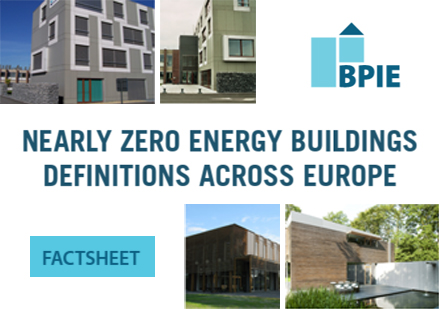European survey shows different speeds on the road to an energy efficient building stock

A new analysis by the Buildings Performance Institute Europe (BPIE) demonstrates the need for clear EU legislation to help Member States make their new and existing buildings energy efficient. While national progress is visible, differences between Member States are significant. The findings come as a number of MEPs and Member States called for prioritising energy efficiency in Juncker’s investment plan, and the European Commission foresees a crucial role for efficiency in its Energy Union concept.
The key tool for improving efficiency in European buildings is the Energy Performance of Buildings Directive (EPBD) which asks Member States to develop a working plan to make their new buildings nearly Zero-Energy Buildings (nZEB) by 2020 while for public buildings the deadline is set for 2018.
According to the new BPIE analysis, progress made by EU countries and Norway varies significantly. While some states are already implementing their nZEB strategies, about half of the countries have not yet defined what an nZEB should look like.
BPIE further found a gap between Member States’ strategies for new and for existing buildings. While about half of EU countries have defined their strategy for new buildings, only 8 have established their nZEB requirements for existing buildings. 5 out of these 8 have set the same requirements for new and existing buildings, while the requirements are less strict in Austria, France and the Brussels Capital Region.
The main reason for these variations is due to the fact that the EPBD only provides a broad definition of nZEB and leaves it up to Member States to work out a detailed definition and implementation strategy for their country.
Buildings have a crucial role to play in Europe’s energy transition and the achievement of its 2020 climate and energy targets, as they account for almost half of the EU’s total energy consumption and 36 % of its greenhouse gas emissions.
Download the BPIE factsheet about nZEB definitions



